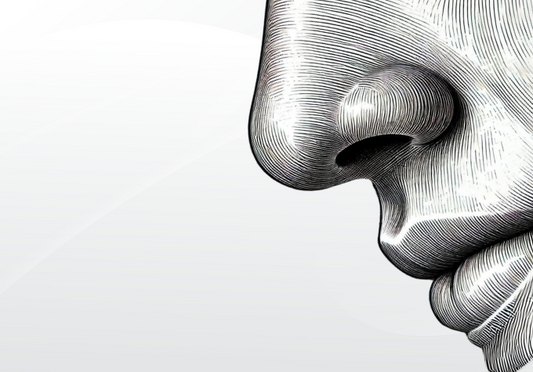Ever wondered how our brains evolve as we age and what we can do to keep them sharp? That question drives our small team of neuroscientists, engineers, and artists every day. Whether you're in your 20s, 30s, or beyond, understanding the brain's changes empowers us to make smarter choices. We’re excited to share this journey with you, exploring how cutting-edge science is reshaping our understanding of mental decline and how we can all strive for peak performance.
The old myths about neurological decline
For a long time, people accepted mental decline as just another part of aging—like getting gray hair or wrinkles. It was widely believed that our brains would inevitably slow down, and there wasn’t much to be done about it. As a team passionate about human potential, we found this narrative frustrating. But the more we dived into the science, the more we discovered that cognitive decline isn’t a given—it’s something we can influence. This realization fuels our quest to understand how to keep our brains sharp and healthy for as long as possible.
How your brain changes as you age
One of the most eye-opening discoveries on our journey has been learning about the natural peaks and valleys in our cognitive abilities. Research by Timothy A. Salthouse and his team in 2004 revealed that our mental sharpness peaks in our 20s and early 30s. After that, there’s a plateau, followed by a 0.5 - 2% annual decline. But here’s the thing: this decline isn’t uniform, and it’s not inevitable. It’s more like a journey through hills and valleys, where our daily choices can influence the landscape. Here's how that journey usually unfolds:
By your late 20s and into your 40s, maintaining concentration will become more challenging. Distractions seem to pop up more easily, and staying focused on tasks requires more effort. This period is crucial because the ability to concentrate impacts productivity and overall cognitive function.
As you move into your mid-30s and beyond, your decision-making becomes slower. This isn’t just a matter of being more cautious; it’s your brain processing complex information more slowly. This change can be particularly noticeable in work or situations where quick, confident decisions are essential.
Between your 30s and 50s, you might start noticing small lapses in memory. This could be forgetting where you placed your keys or struggling to recall someone’s name. While these slips may seem minor, they’re often the first sign that your brain is beginning to change. It’s a signal from your brain that it’s time to start paying attention and consider ways to support your memory.
As we’ve learned, understanding these cognitive changes is just the beginning. To truly get a grip on mental decline, we need to dig deeper into what’s happening inside the brain.
Why does your brain decline?
Our brains are like intricate ecosystems, where neurons (the brain’s messengers) work together to keep everything running smoothly. But what happens when this ecosystem starts to change? That’s the question we’ve been diving into.
The more we’ve explored, the more we’ve come to appreciate the role of two key players in this ecosystem: myelin and synapses.
- Myelin: Think of myelin as the insulation around the electrical wiring in your house. It’s the fatty layer that wraps around the long, thread-like parts of neurons, known as axons. This insulation helps electrical signals travel quickly and efficiently across nerve fibers—the brain’s communication highways. As we age, this insulation can start to break down, slowing those signals and making it harder for our brains to work at peak speed. We’ve been studying how to protect and even rebuild myelin to keep those signals strong.
- Synapses: If myelin is the insulation, then synapses are the connection points where neurons communicate. These connections are vital for learning, memory, and everything else our brains do. But like any connection, they can weaken over time. We’ve been fascinated by how the brain strengthens or creates new connections, a process known as synaptic plasticity.
As we piece together these elements, we’re constantly asking ourselves: What’s driving these changes? And more importantly, how can we use this knowledge to stay mentally sharp?
Which factors deteriorate your brain?
In our research, we’ve learned that the changes we see in the brain aren’t just random—they’re influenced by a mix of neurological, genetic, cellular, and lifestyle factors. This is where our research gets really interesting, as we explored how each of these factors plays a role in cognitive health.
- Neurological Systems: Think of your brain as a complex network that relies on certain chemicals to communicate and function properly. Dopamine and serotonin, often referred to as "feel-good" chemicals, play a key role in regulating your mood and emotions. An imbalance in these chemicals can lead to mood disorders and affect your overall brain health. Additionally, the brain’s powerhouses, known as mitochondria, provide the energy brain cells need to function. When these powerhouses fail due to oxidative stress—an imbalance between damaging molecules and protective antioxidants—it can lead to cell damage. Furthermore, the way your brain processes sugars and fats, essential for energy, can also affect its health, particularly if this processing is disrupted.
- Genetic Influences: Your genetic makeup can predispose you to certain brain health challenges, including how your brain handles aging and disease. Specific genes can affect everything from how brain cells communicate to how they handle stress and repair themselves. Moreover, lifestyle factors such as diet and exercise can cause epigenetic changes, which influence gene activity without altering the genetic code itself, impacting brain function over time. This includes how well you sleep, governed by your circadian rhythms, which are like your body’s 24-hour internal clock.
- Cellular Processes: The health of your brain is closely linked to systemic processes, like how well your body manages inflammation and cleans up cellular debris through a process called autophagy, akin to an internal recycling program. Healthy blood flow and the integrity of the blood-brain barrier, which protects the brain from harmful substances, are also crucial. If these processes are compromised, it can lead to a decline in mental function and an increased risk of neurodegenerative diseases.
- Lifestyle Interactions: External factors such as your environment and how you live your life interact with your genetic predispositions to influence brain health. Stress hormones like cortisol and reproductive hormones like estrogen play significant roles in how your brain functions and responds to daily challenges. Moreover, maintaining a balance of essential minerals like calcium is crucial for nerve function and signaling within the brain.
Looking Ahead: The Road We’re On
Our journey into understanding neurodegeneration is ongoing, and we’re excited about where it’s leading us. We’ve come a long way from the old myths of inevitable decline, discovering that with the right knowledge and tools, we can all take steps to protect and enhance our cognitive health.
Now, you might be wondering, “What can I do right now to protect my brain and boost my cognitive health?” Stay tuned for next week’s blog post, where we will explore exciting developments in neurodegeneration research, different preventative measures, and innovative products and devices that can help us stay mentally fit.





